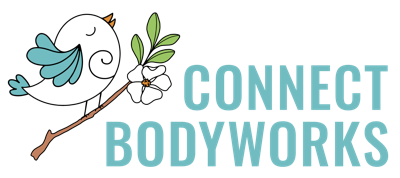FREE Self-Massage Tools That Get Results
FREE Self-Massage Tools That Get Results
Yes, you can massage yourself at home. No, it won’t be as great as booking an appointment with me (obviously!). But the same way that brushing and flossing between dentist visits keeps your teeth and gums healthier for longer, self-massage can prolong the benefits of your sessions and help keep pain and stiffness at bay.
Self-massage can (literally) be awkward as you contort your body to reach pain points. It can also cause pain and discomfort in your hands when you aren’t properly trained. While there are certainly many self-massage tools that you can buy online, there are a few common household objects you can put to use RIGHT NOW, no shipping required.
Self-massage tools from around the house:
Tennis ball
Skip the one covered in dog drool and go dig a clean one out of that bin in the garage. If you don’t have a tennis ball, a racquetball or handball also works.
Techniques
● Lie on your back or stand up against the wall. Put the tennis ball between your shoulder blades or right behind your armpit. If you are lying down, your bodyweight will apply pressure into the ball. If you are standing, lean into it.
● Sit on the floor with legs out in front of you. Slide the ball under your calf. The weight of your leg applies the pressure into the ball.
● Get on your hands and knees. Put the tennis ball under the soft part of the shin (the muscle, not the bone) and let your bodyweight apply pressure.
You can use a harder, smaller ball, like a golf ball, to massage tight areas, but take care not to be too aggressive here. This is no time for “no pain, no gain.” You want to work up to the point of discomfort and gently test that line, but not go too far. Be gentle with yourself! It's better to be conservative and mindful so you don't aggravate an area that’s already inflamed.
Here's a great tip: Avoid chasing your tennis ball all over the place while trying to use it for massage by sticking it inside of a sock. If you put two or three inside a sock and tie the end closed, you now have a roller that’s particularly nice to use on your quads.
Towel
A foam roller is a great self-massage tool and usually one of the first things I recommend clients buy. However, they can be bulky and awkward to store and not everyone has the space to use one effectively. And if you can get similar results for free, why not do that?
Techniques
Roll up a large towel (like beach towel) into a cylindrical shape and place it on the floor. Lie along its length so your tush is at one end and your head is at the other end (the towel is along your spine). Then move your arms as if you are making snow angels. This gives a wonderful stretch through the chest and helps with upper back pain after a long day sitting at a desk.
Now take that same towel and rotate it 90 degrees. Lie back down with the towel horizontal at the base of your shoulder blades. Your upper torso should now be slightly arched backwards over the towel roll. This posture is a useful to counterbalance the all-to-common hunched forward posture.
If one towel isn’t firm enough, use two together, or combine a towel and a yoga mat to give a bit more support.
Frozen water bottle
Fill a plastic bottle with water and freeze it. Once frozen, roll it over sore areas. This is an efficient way to massage and apply ice all at once. This technique is most often recommended for plantar fasciitis, but you can also use it on your calves, quads, forearms, and neck.
Rolling pin
Massage stick rollers can cost $30 or more! Instead, use a rolling pin to massage your quads, hamstrings, and calves. Granted, it’s not as versatile as a foam roller, but it gets the job done effectively.
Wall
A wall is available anytime anywhere. Use your tennis ball up against a wall rather than lying on the ground to massage your shoulders, hip flexors, glutes, and pecs.
To improve your upper spine mobility, wall angels are tough but effective.
No props
Traveling or stuck at work with no props, but desperately need a massage? No problem! You can still get the benefits of self-massage through joint mobility, which can be very effective at reducing muscle tension. Consider these movements:
● Neck rolls
● Wrist circles
● Shoulder shrugs
● Shoulder rolls
● Hip circles
● Standing spinal roll down and roll up
● Standing side reach
● Active child’s pose
● Ankle rolls
Progressive muscle relaxation is massage and meditation all in one. Regularly incorporating this into your self-massage routine will help you feel grounded, relaxed, and free in your body until you can get back on my massage table.
Conclusion
Self-massage between massage sessions with me helps to maximize the benefits of your regular massage appointments and keep your body pain-free for as long as possible.
Let me know which of these self-massage techniques worked best for you. I can’t wait to see you on my table again! Schedule your appointment here.
